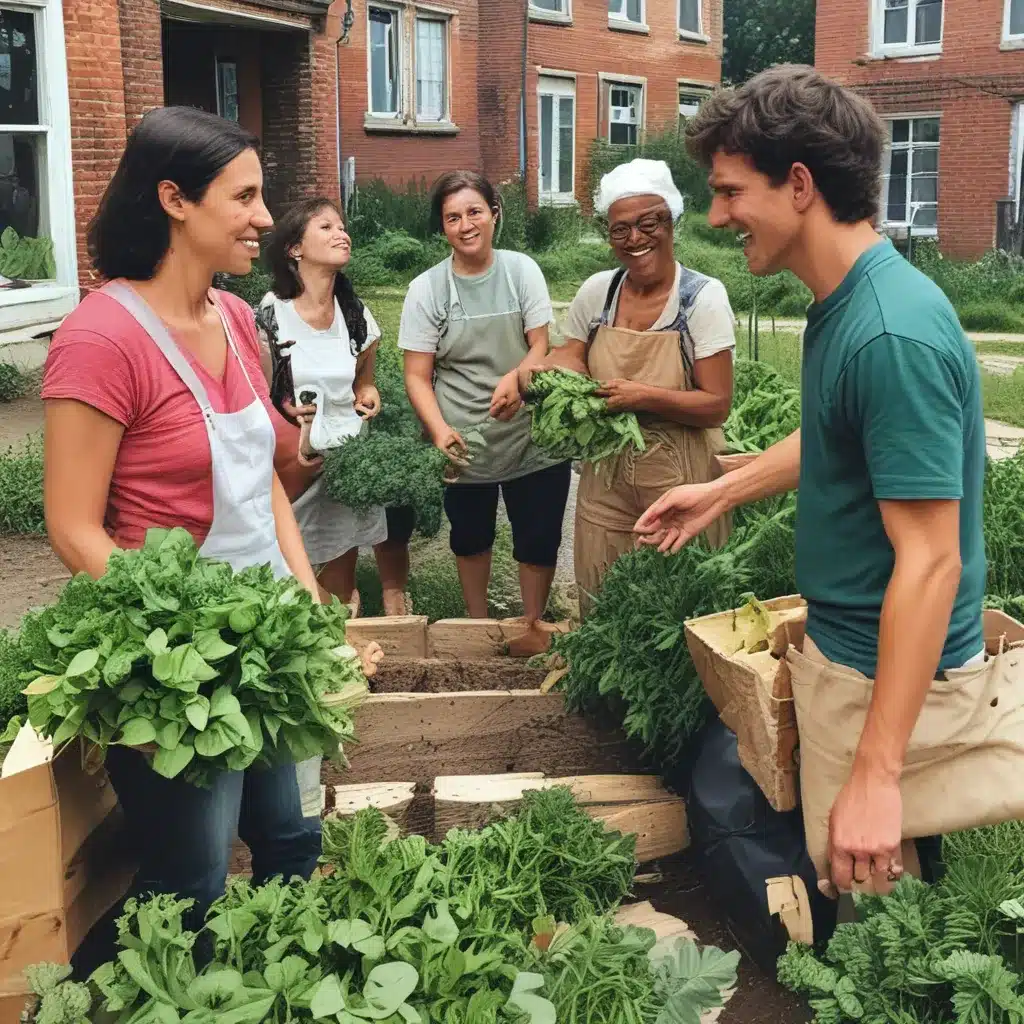
Cultivating Community Connections
As I stroll through the bustling Thornapple CSA farmers market, the vibrant colors and tantalizing aromas instantly transport me. This isn’t just a place to purchase produce – it’s a hub of community, a gathering of kindred spirits united by a shared passion for local, sustainable food.
I pause to admire the neatly arranged displays, each vendor proudly showcasing their harvest. A friendly farmer waves hello, eager to share the story behind their juicy tomatoes or fragrant herbs. It’s in these moments that I’m reminded of the profound impact a community-supported agriculture (CSA) program can have on a neighborhood.
Strengthening the Local Food Web
Community Supported Agriculture is more than just a convenient way to access fresh, seasonal produce. It’s a powerful tool for rebuilding local food systems, fostering resilience, and nourishing communities from the ground up.
By directly connecting consumers and producers, CSAs help create a more transparent and profitable local food economy. Farmers receive upfront payments that allow them to invest in their operations and plan for the growing season ahead, ensuring their long-term viability. In turn, members enjoy a steady supply of high-quality, farm-fresh goods while gaining a deeper understanding of where their food comes from and how it’s grown.
It’s a mutually beneficial arrangement that strengthens the local food web, empowering small-scale farmers and providing communities with greater access to nutritious, sustainably-produced foods. As consumers become more invested in their local food systems, they’re also more likely to support other nearby businesses and community initiatives, further strengthening the fabric of their neighborhoods.
Cultivating Resilience
In an age of global supply chain disruptions and economic uncertainty, CSAs offer a refreshingly resilient alternative. By sourcing food locally, they insulate communities from the ripple effects of distant shocks and ensure a reliable source of nourishment, even in times of crisis.
Urban farms, in particular, have emerged as vital hubs of food security and community resilience. These oases of green amidst the concrete jungle not only provide fresh produce, but also serve as gathering spaces, educational centers, and catalysts for neighborhood revitalization.
Take Franklinton Farms, for example. This thriving urban agricultural hub in Columbus, Ohio, has become a beacon of hope for the surrounding community, which has long grappled with economic and social challenges. By offering educational programs, workforce development initiatives, and therapeutic gardening opportunities, Franklinton Farms is empowering residents to take an active role in shaping their local food system and building a more sustainable, equitable future.
Cultivating Healthy Communities
But the benefits of CSAs extend far beyond the economic realm. By fostering a deeper connection between people and their food, these programs also nurture holistic well-being, both on an individual and community level.
When we understand the journey our food takes from seed to plate, we develop a newfound appreciation for the hard work and stewardship required to bring nourishment to our tables. This awareness can inspire us to make more mindful, sustainable choices in our daily lives, from reducing food waste to supporting local businesses.
Moreover, the act of gathering at a farmers market or picking up a CSA share can be a powerful social connector, bringing neighbors together and strengthening the fabric of the community. These shared experiences cultivate a sense of belonging, foster meaningful relationships, and provide opportunities for cross-cultural exchange – all of which are vital for building healthy, resilient communities.
Cultivating Environmental Stewardship
Beyond the social and economic benefits, CSAs also play a crucial role in promoting environmental sustainability. By prioritizing local, organic, and regenerative farming practices, these programs help reduce the carbon footprint associated with long-distance food transportation and industrial agriculture.
Sustainable food systems are essential for addressing the pressing environmental challenges of our time, from climate change to biodiversity loss. By supporting CSAs, community members become active stewards of the land, investing in the long-term health and resilience of their local ecosystems.
This ethos of environmental stewardship extends beyond the farm, as well. Many CSAs incorporate educational programming and community initiatives that inspire members to adopt more sustainable behaviors in their daily lives, from composting and water conservation to native plant gardening and clean-up efforts.
Cultivating a More Equitable Future
Perhaps most importantly, CSAs have the power to address deep-seated inequities within our food system, ensuring that all community members have access to nutritious, affordable sustenance.
By prioritizing diversity, inclusivity, and community-driven solutions, CSAs can serve as catalysts for social change, empowering marginalized groups and creating pathways for economic empowerment and self-determination.
In underserved urban areas, for instance, urban farms like Franklinton Farms are not only providing fresh produce, but also offering educational programs, workforce development, and therapeutic gardening opportunities that address the holistic needs of the community.
These initiatives don’t just nourish bodies – they nourish minds, spirits, and the collective vision for a more just, equitable future. By investing in local food systems, we’re investing in the well-being of our neighborhoods and the resilience of our communities.
Cultivating a Thriving Future
As I bid farewell to the vibrant Thornapple CSA farmers market, I’m filled with a renewed sense of hope and purpose. In a world increasingly disconnected from its food sources, these programs offer a powerful antidote – a way to reweave the threads of community, stewardship, and nourishment that are essential for our collective well-being.
By supporting local, sustainable agriculture through CSAs, we’re not just accessing fresh, wholesome food – we’re cultivating the foundations of a more resilient, equitable, and thriving future for ourselves and generations to come. It’s a future where our neighborhoods are nourished, our communities are strengthened, and our shared connection to the land is celebrated and preserved.
So, let’s raise a glass (or a bushel) to the transformative power of community-supported agriculture – and the dedicated farmers, organizers, and neighbors who are tending to the roots of a more sustainable, just, and delicious world.



